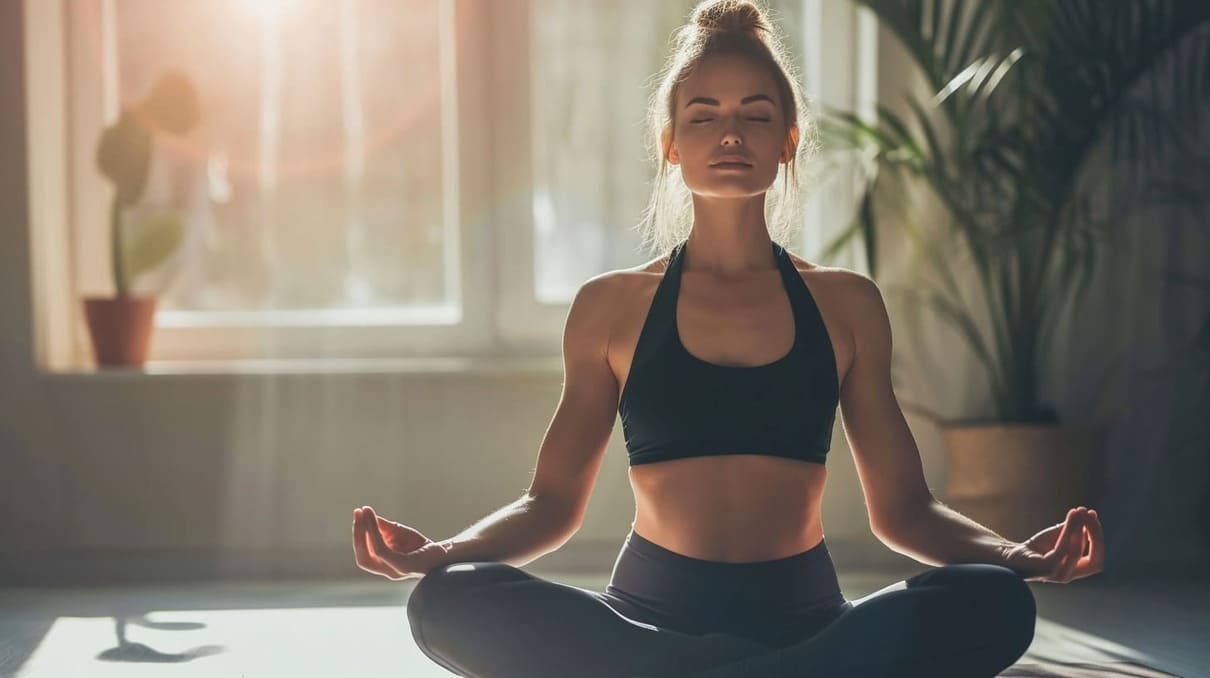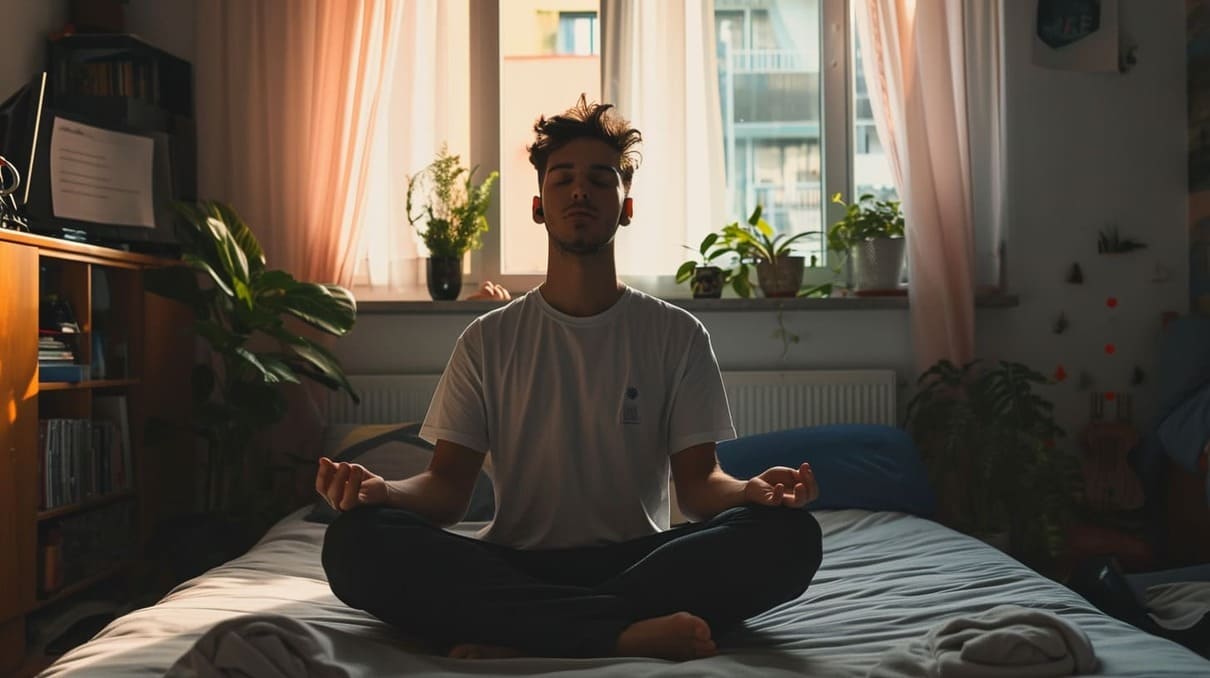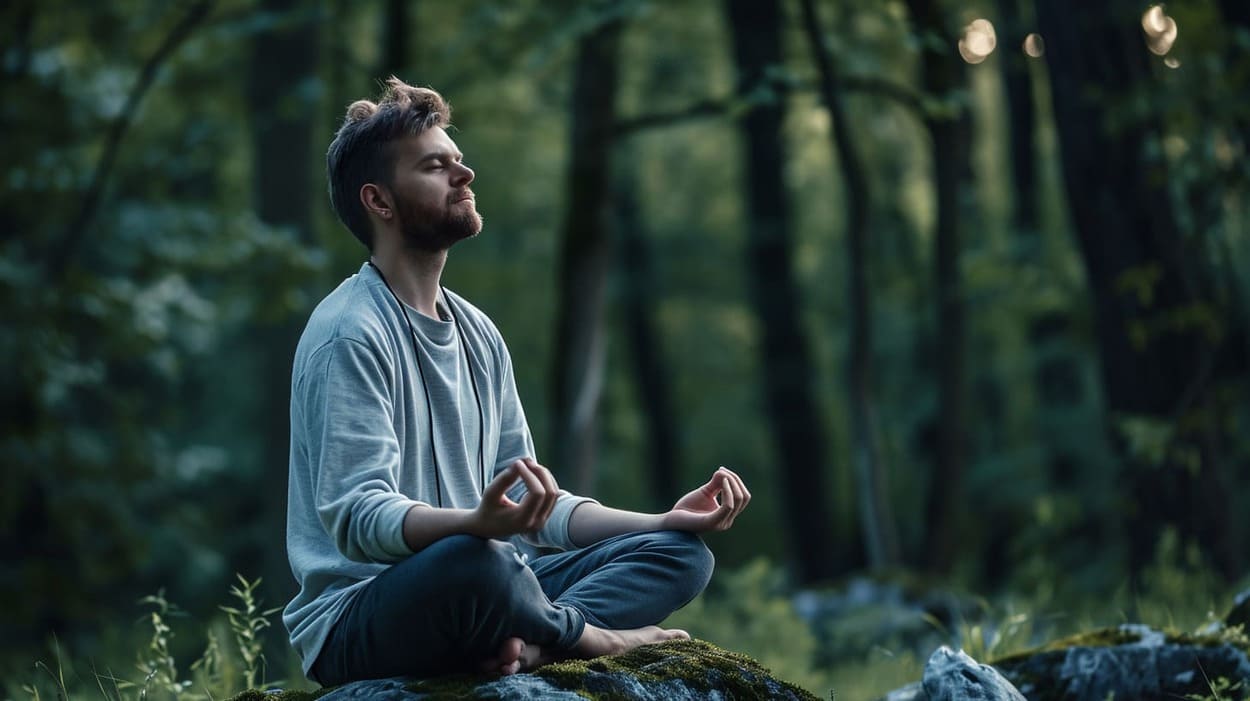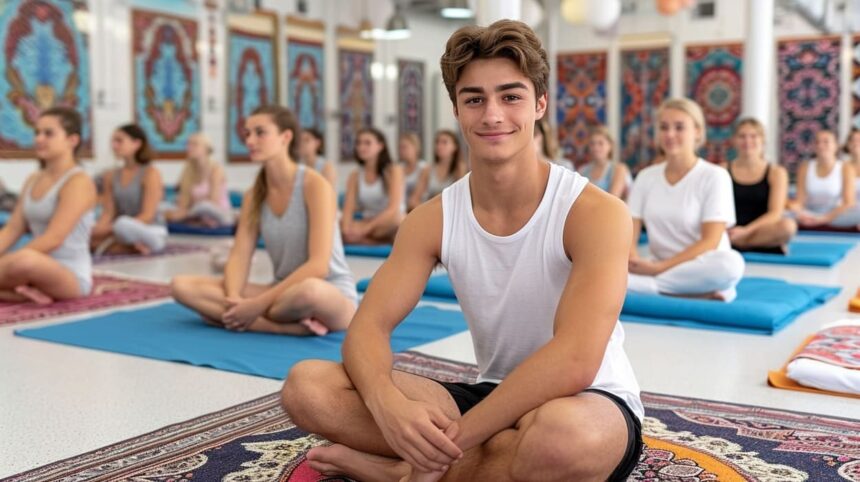In today’s fast-paced world, finding peace and quiet isn’t just a luxury—it’s a necessity. Meditation offers a refuge, a practice that not only calms the mind but also enhances physical well-being. This guide is designed to help beginners embark on a journey of self-discovery and inner tranquility through meditation.
Understanding Meditation
Meditation is an ancient practice, rooted in various cultures around the world. It’s not about changing who you are, but learning to appreciate yourself more fully. By focusing the mind and reducing scattered thoughts, meditation helps cultivate a state of peace and balance.
The Myths and Realities
- Myth: Meditation requires emptying the mind of thoughts.
- Reality: Meditation involves observing thoughts without judgment, not eliminating them.
Preparing for Meditation

Setting up for success is key in meditation. This section covers the essentials of creating a conducive environment and mindset for your practice.
Choosing Your Meditation Space
Your environment should be quiet and comfortable. A corner in your bedroom or a dedicated room can become your sanctuary. Personalize this space with items that evoke peace and serenity.
Best Time for Meditation
While meditation is beneficial at any time, many find early morning or late evening to be ideal. Experiment with different times to discover what feels right for you.
Basic Meditation Techniques

There are several techniques suited for beginners. Here’s how to get started with a few foundational practices.
Focused Attention Meditation
This technique involves focusing on a single point. Start with your breath, paying attention to the inhale and exhale, and gently return your focus whenever your mind wanders.
Mindfulness Meditation
Mindfulness encourages present moment awareness. Observe your thoughts, feelings, and bodily sensations without judgment, allowing them to pass like clouds in the sky.
Visualization
Engage your imagination by visualizing a peaceful scene—perhaps a quiet beach or a serene forest. This can be particularly soothing and invigorating.
Here are some populair meditation techniques and their benefits
| Technique | Focus Point | Benefits | Suitable For |
|---|---|---|---|
| Focused Attention | Breath, Mantra | Improves concentration, Reduces anxiety | Beginners, Those seeking clarity |
| Mindfulness | Present moment, Thoughts | Increases self-awareness, Enhances acceptance | Anyone, Especially stressed individuals |
| Body Scan | Physical sensations, Relaxation | Promotes relaxation, Body awareness | Those with physical tension |
| Visualization | Imagined scenes, Goals | Boosts creativity, Achieves calm | Creative individuals, Anyone seeking escape |
| Loving-kindness | Compassion, Well-being of others | Fosters empathy, Reduces negative emotions | Those looking to improve relationships |
Establishing a Routine

Consistency is more important than duration. Begin with short, daily sessions and gradually extend your meditation time as it becomes a natural part of your routine.
Setting Realistic Goals
Start with 5 to 10 minutes a day, and slowly increase as you feel comfortable. Remember, the quality of meditation is more important than how long you sit.
Overcoming Common Challenges

Every beginner faces hurdles. Here’s how to navigate some of the most common challenges in meditation.
Dealing with Distractions
Distractions are inevitable. When you notice your mind wandering, simply acknowledge it and gently bring your attention back to your meditation focus.
Managing Expectations
It’s normal to have expectations about meditation, but these can sometimes lead to frustration. Approach each session with an open mind and without specific goals.
Resources for Further Learning
To deepen your practice, consider exploring these resources:
- Apps: Headspace, Calm, and Insight Timer offer guided meditations suitable for all levels.
- Books: “Wherever You Go, There You Are” by Jon Kabat-Zinn and “The Miracle of Mindfulness” by Thich Nhat Hanh provide insightful perspectives on meditation.
- Local Classes: Joining a meditation group or class can offer support and guidance from experienced practitioners.
Conclusion
Meditation is a personal journey that unfolds differently for everyone. Be patient and kind to yourself as you explore this profound practice. Remember, the benefits of meditation are not just in the moments of stillness, but in the clarity and peace that you carry into your daily life.

Leave a Reply